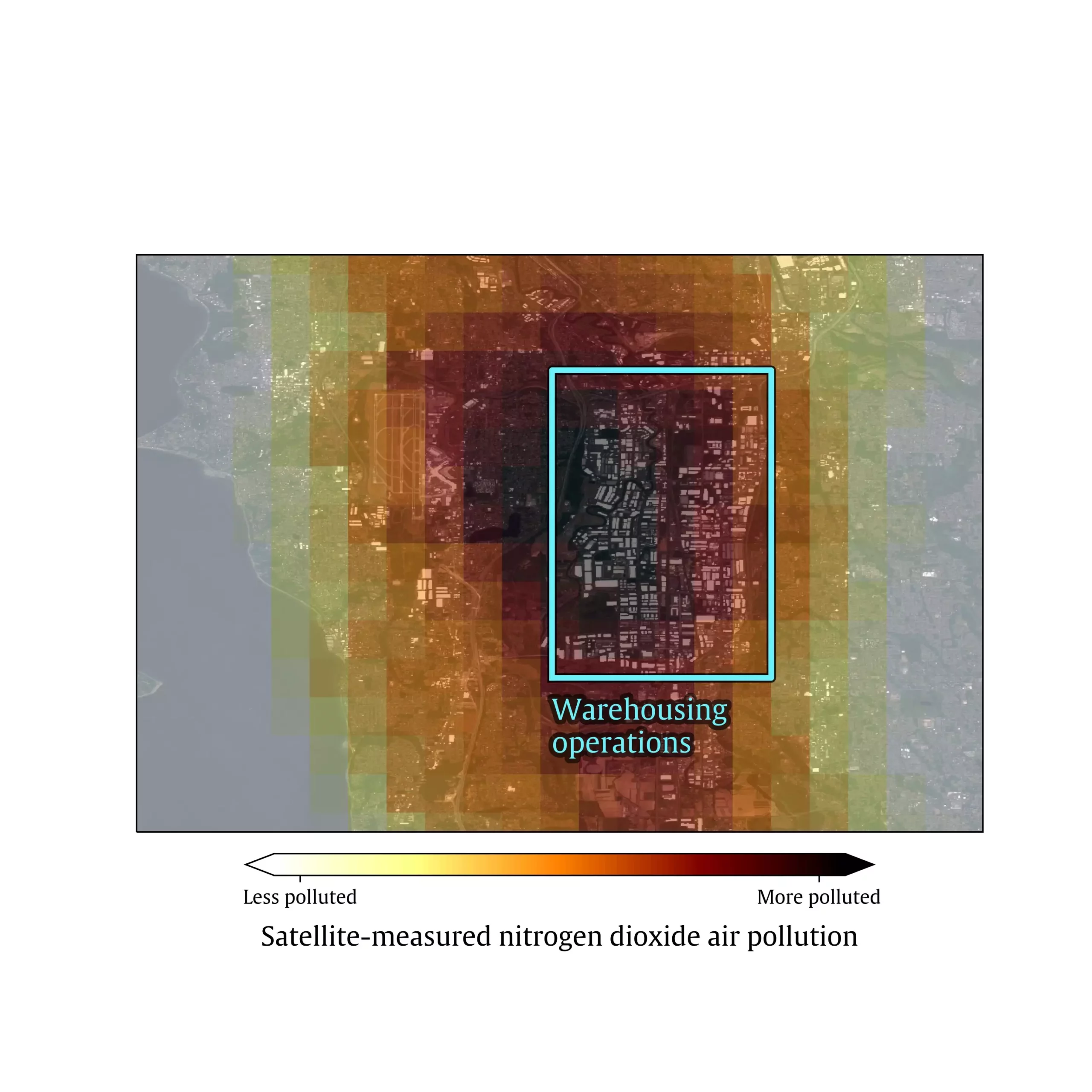In recent years, the demand for products delivered directly to consumers has driven a significant increase in the e-commerce and warehousing industry in the United States. However, a new study published in Nature Communications reveals alarming findings about the impact of large warehouses on air pollution in nearby communities. Researchers have found that people living in close proximity to these warehouses are exposed to higher levels of traffic-related air pollutants, which can lead to serious health implications such as asthma and other life-threatening conditions.
The study, titled “Air pollution impacts from warehousing in the United States uncovered with satellite data,” conducted by lead author Gaige Kerr and his colleagues at the George Washington University Milken Institute School of Public Health, utilized satellite data from the European Space Agency to measure nitrogen dioxide levels near nearly 150,000 large warehouses across the United States. The researchers discovered that increased truck traffic to and from these warehouses results in a 20% spike in nitrogen dioxide levels in nearby communities. This is concerning as nitrogen dioxide is a harmful pollutant that can have detrimental effects on human health.
Disproportionate Impact on Minority Communities
One of the most alarming findings of the study is the disproportionate impact of warehouse-related air pollution on communities of color. The researchers found that racial and ethnic minority populations are more likely to live in close proximity to these warehouses, leading to higher exposure to nitrogen dioxide and other harmful pollutants. For example, the study revealed that Hispanic and Asian populations living near the largest clusters of warehouses are exposed to nitrogen dioxide levels that are 250% higher than the national average. This highlights the environmental justice issues at play and the need for targeted interventions to protect vulnerable populations.
Despite the widespread distribution of warehouses across the United States, the study found that 20% of these facilities are concentrated in just 10 counties. These counties include Los Angeles, California; Harris, Texas; Cook, Illinois; Miami-Dade, Florida; Maricopa, Arizona; San Bernardino, California; Orange, California; Dallas, Texas; Alameda, California; and Cuyahoga, Ohio. This concentration of warehouses in specific areas exacerbates the air pollution burden on local communities and underscores the need for targeted environmental policies and regulations.
Implications for Public Health
The COVID-19 pandemic has further accelerated the growth of the e-commerce industry and the warehousing sector, leading to increased traffic and air pollution in communities near these facilities. While previous studies have examined the impact of warehouses on air pollution in specific neighborhoods, this nationwide study provides crucial insights into the environmental injustices faced by communities living near industrial hubs. The researchers stress the urgent need for regulations that promote zero-emission vehicle use in logistics to reduce the adverse health effects on vulnerable populations.
The study on air pollution impacts from warehousing in the United States highlights the pressing need for action to address the environmental injustices faced by communities living near large warehouses. The research underscores the importance of implementing regulations that promote cleaner air and reduce harmful pollutants emitted by trucks and other vehicles associated with warehouse operations. By prioritizing the health and well-being of vulnerable populations, industry leaders, policymakers, and utilities can work together to mitigate the adverse effects of air pollution on communities across the country.


Leave a Reply